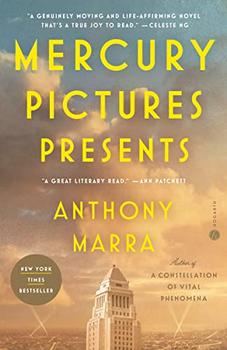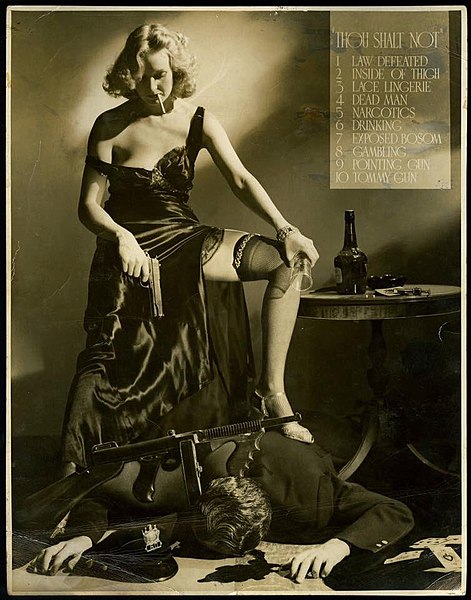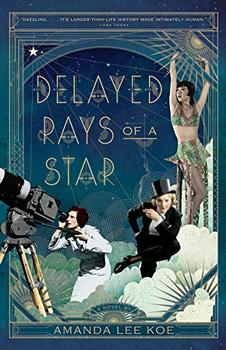Summary | Excerpt | Reading Guide | Discuss | Reviews | Beyond the book | Read-Alikes | Genres & Themes | Author Bio

A Novel
by Anthony MarraThe epic tale of a brilliant woman who must reinvent herself to survive, moving from Mussolini's Italy to 1940s Los Angeles—a timeless story of love, deceit, and sacrifice from the award-winning, New York Times bestselling author of A Constellation of Vital Phenomena
Like many before her, Maria Lagana has come to Hollywood to outrun her past. Born in Rome, where every Sunday her father took her to the cinema instead of church, Maria immigrates with her mother to Los Angeles after a childhood transgression leads to her father's arrest.
Fifteen years later, on the eve of America's entry into World War II, Maria is an associate producer at Mercury Pictures, trying to keep her personal and professional lives from falling apart. Her mother won't speak to her. Her boss, a man of many toupees, has been summoned to Washington by congressional investigators. Her boyfriend, a virtuoso Chinese American actor, can't escape the studio's narrow typecasting. And the studio itself, Maria's only home in exile, teeters on the verge of bankruptcy.
Over the coming months, as the bright lights go dark across Los Angeles, Mercury Pictures becomes a nexus of European émigrés: modernist poets trying their luck as B-movie screenwriters, once-celebrated architects becoming scale-model miniaturists, and refugee actors finding work playing the very villains they fled. While the world descends into war, Maria rises through a maze of conflicting politics, divided loyalties, and jockeying ambitions. But when the arrival of a stranger from her father's past threatens Maria's carefully constructed façade, she must finally confront her father's fate—and her own.
Written with intelligence, wit, and an exhilarating sense of possibility, Mercury Pictures Presents spans many moods and tones, from the heartbreaking to the ecstatic. It is a love letter to life's bit players, a panorama of an era that casts a long shadow over our own, and a tour de force by a novelist whose work The Washington Post calls "a flash in the heavens that makes you look up and believe in miracles."
Marra's prose is lush and evocative, eliciting a whole host of emotions from his readers; it's by turns laugh-out-loud funny, joyous, poignant and heartbreaking — but always gloriously descriptive ("The pianist lung[ed] through Schoenberg with the violent elegance of a cat stalking a butterfly across the keyboard"). I particularly enjoyed the author's frequent digressions that have little to do with the plot but ramp up the novel's entertainment value while rounding out the characters. Although the characters are by-and-large fictional, the author sticks closely to the historical record, and I reveled in the details...continued
Full Review
 (838 words)
(838 words)
(Reviewed by Kim Kovacs).
 In Anthony Marra's novel Mercury Pictures Presents, the main characters struggle to ensure their movies adhere to the Motion Picture Production Code.
In Anthony Marra's novel Mercury Pictures Presents, the main characters struggle to ensure their movies adhere to the Motion Picture Production Code.
In the early years of the 20th century, as motion pictures were becoming increasingly available to the American public, some segments of the population expressed the opinion they were promoting depravity. In 1915, the Supreme Court ruled that the First Amendment (protecting freedom of expression) didn't apply to movies, and individual cities began to ban films they deemed immoral. During the 1920s, the Catholic church considered banning films entirely (meaning prohibiting adherents of the faith from attending any movie).
Fearing such a ban would impact profits and concerned about ...

If you liked Mercury Pictures Presents, try these:

by Ava Barry
Published 2022
A stunning literary thriller in which an investigative journalist in modern Los Angeles attempts to solve the Golden Age murder of a Hollywood starlet.

by Amanda Lee Koe
Published 2020
A dazzling debut novel following the lives of three groundbreaking women - Marlene Dietrich, Anna May Wong, and Leni Riefenstahl - cinema legends who lit up the twentieth century.